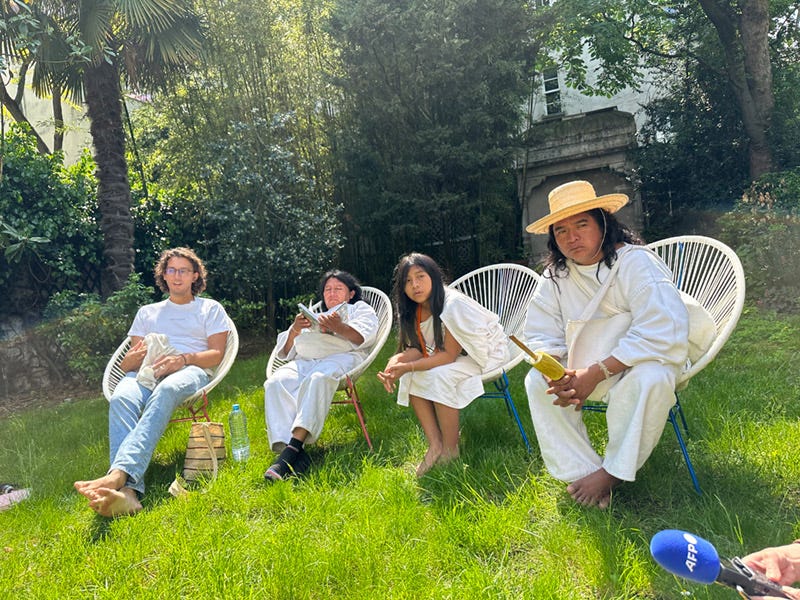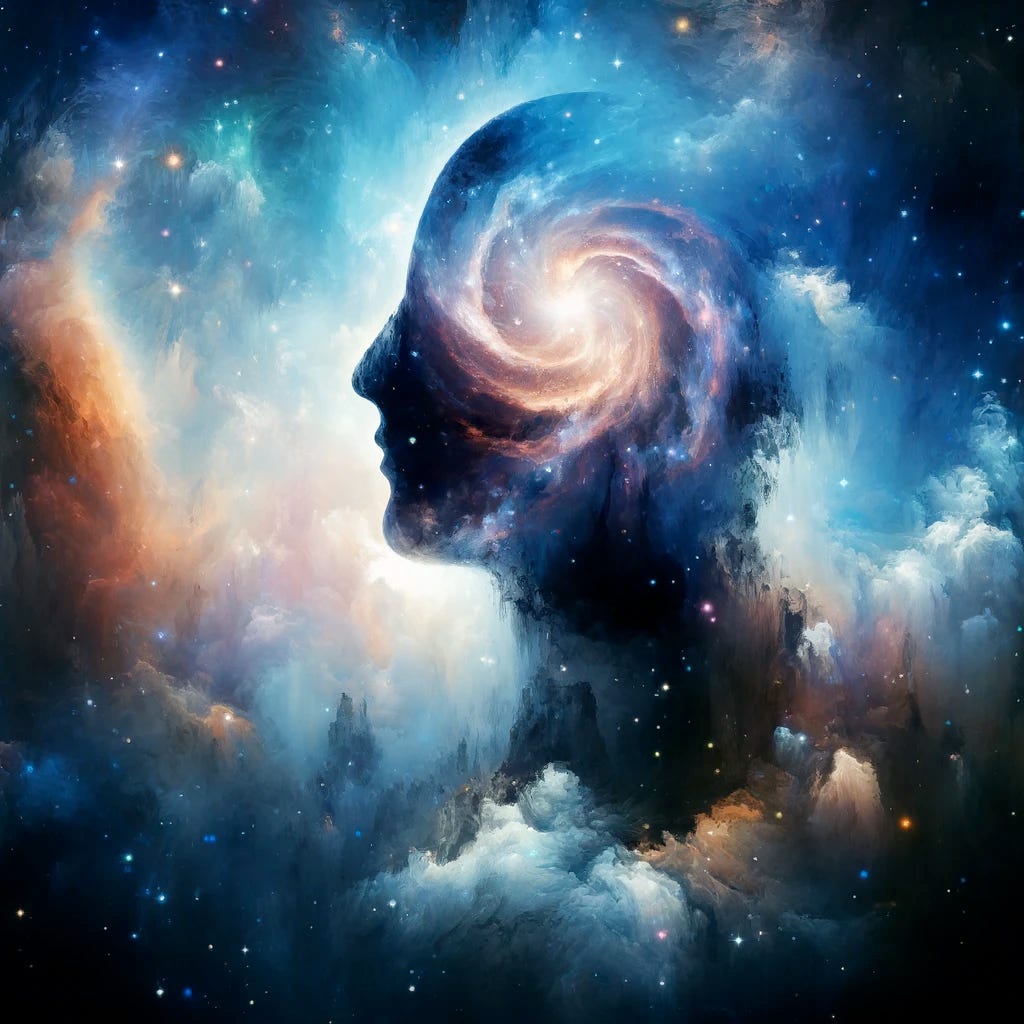Exploring the City of the Mind, Part II
What if you could navigate your psychological landscape as easily as your hometown? Discover how altering the architecture of your inner world can transform your entire life experience.
This is the second of a three-part series. Please start with part one, or skip to the lessons in part three.
Beyond the City: Other Schemas
In the first part of this series, we explored how our external environments shape our thoughts and define who we are. We introduced the concept of the "City of the Mind," a metaphor illustrating that our waking consciousness does not differentiate between our interior and exterior landscapes. If you haven't read the first installment, I highly recommend starting there to fully appreciate the foundations of our discussion.
Today, we'll build on that framework by venturing beyond the familiar city limits into other mental models that offer unique perspectives on our psyche. But first, let me share a story that vividly contrasts these ideas.
Last year, I found myself in an upscale Parisian mansion, sitting across from three Kogi "mamos" and Lucas Bucholz, who translated for them. The Kogi, a tribe from Colombia, shared their view of the natural world as part of a greater divine order—where everything from the smallest insect to the largest mountain holds a specific place and purpose. In their cosmovision, the Earth is a living entity, pulsating with life and intertwined with human existence. Unlike the Western view where nature is often seen as a resource to be managed, the Kogi see it as a sacred fabric that connects all forms of life, requiring our respect and care.
This encounter starkly highlighted the contrast between the Kogi's integrated view of nature and the subject-object duality that often dominates Western thinking. It was a profound reminder of the diverse ways cultures understand and interact with the world around them.
With this story as our backdrop, let's now explore our first alternative mental model: 'Ecological or Natural Landscapes.' This model encourages us to see our mental and physical existence as deeply connected to and reflective of the natural world around us. Just as a diverse ecosystem thrives on interdependence and balance, so too can our mental landscapes benefit from a more integrated and holistic view of our place within the natural world.

Ecological or Natural Landscapes: Here, mountains represent our highest achievements and the challenges we've overcome, rivers symbolize the flow of our emotions and life's journey, forests embody the complex, often unexplored aspects of our subconscious, and oceans reflect the vast, deep unknowns of our inner selves. This natural schema helps us appreciate the dynamic, interconnected ecosystems of our thoughts, feelings, and spiritual endeavors. Indigenous cultures such as the Kogi from the Sierra Nevada de Santa Marta mountains in Colombia embody this type of deep ecopsychology. Most city dwellers are removed from natural environments in their daily lives, and thus do not correspond organically to ecopsychology.
Artistic or Musical Themes: Alternatively, envisioning our internal landscape as a canvas or a symphony offers a different, more abstract kind of insight. Each stroke of paint or musical note can represent different facets of our emotional and cognitive experiences, blending together to form a unique piece of art or a melody. This metaphor encourages us to see our lives as creative expressions, where variations in color, intensity, and harmony reflect the nuances of our personal and emotional narratives.
Technological Networks: A level up in abstraction which didn’t exist a century ago, modern minds might also be likened to intricate technological networks, where thoughts and impulses travel like data through circuits. This digital schema views the psyche as a complex system of information processing, with neural pathways mirroring communication lines and memory storage akin to cloud computing, with both hardware and software elements. Embracing this metaphor, we can explore how our mental 'software'—our beliefs and values—programs our behaviors and interactions, and consider how 'upgrading' our mental software could improve our overall psychological functioning. Pushing this idea further, some hypermodern thinkers suggest our lived reality might be akin to a computer simulation, while transhumanists explore enhancements like brain implants that could one day blur the lines between human cognition and artificial intelligence.
The Future of Mental Schemas
As we explore the types of schemas that illustrate our internal worlds—ranging from cities to ecosystems, and from artistic canvases to technological networks—we are inevitably drawn to consider future types of mental models. The progression from tangible, natural metaphors to increasingly abstract and technological frameworks — from the material city environment towards more immaterial art, music, and the abstraction of software — mirrors the evolution of human consciousness, and hints at the potential transformations in how we understand and interact with our own minds.
This progression reflects a deeper cognitive and conceptual evolution. Our increasing ability to abstract and digitize our thoughts and interactions points toward future developments where our mental landscapes might be even more malleable and interconnected, influenced by emerging technologies such as AI and virtual reality.

The next generation of mental schemas will inevitably incorporate elements of quantum computing, allowing us to hold multiple contradictory beliefs without conflict—akin to Jung’s concept of holding the tension of opposites. Similarly, augmented reality will seamlessly integrate external data into our internal thought processes, representing a significant meta-schema. These advancements are poised to redefine our understanding of identity, consciousness, and community, further blurring the lines between material, digital, and virtual identities.
While these future technologies will introduce new schemas, the older ones—like those of nature and architecture—will likely persist, continuing to provide foundational insights and stability amidst change. Just as spoken language adapted to the written word, these traditional schemas will adapt to new cognitive technologies, ensuring that our historical and cultural insights continue to inform and ground our understanding of the psyche.
This introduction and exploration of existential meta-psychology through various schemas—from the architectural to the technological—reveals the profound ways in which our inner landscapes shape and co-evolve with our external realities. As we understand and redesign these landscapes, we gain not only greater self-awareness but also enhanced capacity to influence both our personal lives and our broader communities.1
I encourage you to reflect on which of these metaphors resonates most deeply with your experience. Consider how reimagining your own mental landscape might affect your life choices and relationships. What changes would you make if you could redesign your mental city, or tend to your psychological garden?
Whether we recognize it or not, our consciousness is not merely surrounded by, but deeply enmeshed with, the outer world. In traversing this external realm, we navigate the vast landscapes of our inner being. Each encounter and experience in the physical world is a reflection, a mirror of the contours, depths, and nuances of our inner selves. In this profound interplay, the boundary between the inner and outer worlds dissolves, revealing that to experience one is, in truth, to explore the other.
Understanding the fluid boundary between the internal and external worlds can be incredibly empowering. It suggests that by transforming our inner landscape—our thoughts, beliefs, and emotions—we can significantly influence our external experiences and reality. This perspective encourages a form of living that is conscious, intentional, and deeply connected to personal and spiritual growth.
Thank you for reading — this series continues in part three.
Note: Existential Meta-Psychology, the subject of this blog post, combines existentialism, phenomenology, and Jungian psychology into a holistic view of human consciousness and reality. Existential meta-psychology explores the dynamic interplay between our inner experiences and external realities, illustrating how deeply our subconscious constructions affect our day-to-day lives.2
We can synthesize these concepts into new understandings:
Existential Phenomenology: By merging existentialism and phenomenology, we can form a more comprehensive understanding of how personal realities are constructed. This synthesis illuminates the ways in which our chosen meanings and the inherent structures of our experiences interact to shape our mental landscapes.
Transcendental Phenomenology: Adding a spiritual dimension through transcendental phenomenology introduces concepts like spiritual awakenings and transcendence, further enriching our understanding of the mental landscapes we inhabit.
Existential Meta-Psychology, the subject of this blog post: This proposed new framework combines existentialism, phenomenology, and Jungian psychology into a holistic view of human consciousness and reality. Existential meta-psychology seeks to explore the dynamic interplay between our inner experiences and external realities, illustrating how deeply our subconscious constructions affect our day-to-day lives.
Literature for Further Exploration:
“Re-Visioning Psychology” by James Hillman delves into the imaginative and mythical aspects of psychology.
“Integral Psychology” by Ken Wilber provides a comprehensive map of human consciousness incorporating psychological, spiritual, and philosophical insights.
“Being and Time” by Martin Heidegger explores concepts of being that deepen your understanding of how internal realities influence external ones.


"The Grid. A digital frontier.
I tried to picture clusters of information as they moved through the computer.
What did they look like? Ships? Motorcycles? Were the circuits like freeways?
I kept dreaming of a world I thought I'd never see. And then one day...
I got in!"
- Flynn (TRON)